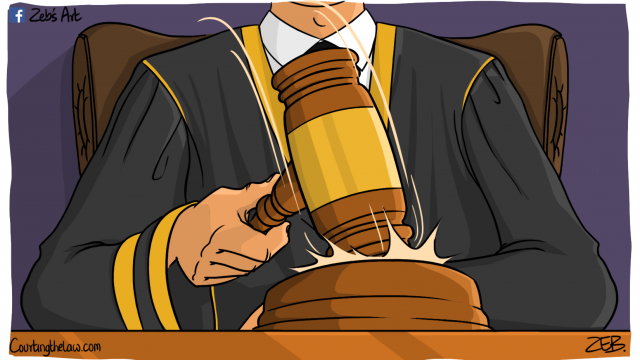Pakistan’s judicial history, rich in its complexities and dramatic turns, has always captivated the nation. With recent Supreme Court proceedings broadcast live on television and social media, these legal dramas have transcended the confines of courtrooms and legal circles, entering the living room of every household.
The highly anticipated decision on Parliament’s reserved seats has been announced and, thanks to media coverage, theatrics are in full swing. With judicial restraint now in vogue and judicial activism seemingly an outdated concept in the era of televised Supreme Court proceedings, it was expected that the court would steer clear of any constitutional acrobatics. Critics of the interpretation of Article 63-A had seemingly dozed off, comforted by the belief that the gates to Bench-I of the Supreme Court had been fortified by textualism.
But before delving deeper, let’s set the legal stage by enumerating a few principles established by the Supreme Court:
- First, the Constitution is supreme.
- Second, any law that violates the Constitution can be struck down by constitutional courts.
- Third, and most intriguing, the Constitution is a living document that must be interpreted organically and, as such, its interpretation shall evolve with time.
This perspective breathes life into our sacred document. However, it raises an essential question posed in a landmark judgment interpreting Article 63-A: are judges rewriting, reading into, or simply interpreting the Constitution?
It is important to remember that the Constitution was endowed with life many decades ago. Like the reader and arguably the author, it has a heart, an independent mind that grows wiser with age and, most importantly, an adaptive conscience. It was this very conscience that interpreted Article 63-A, despite the fact that the disregard of a vote cast by a member of the Assembly was never explicitly mentioned in the Constitution. Moreover, the top judge presiding on the bench in that case remarked that disregarding a vote would constitute a fraud on the Constitution. Yes, you heard that right! But the Constitution’s conscience had already taken a hit post-Panama Papers saga. It was time for a revival, and it came, illuminating the righteous path of political practice. The right to govern and be governed, as articulated in the 1993 Nawaz Sharif judgment interpreting Article 17, was expanded to include the usage of good, healthy practices. Defection and floor crossing were considered cancers to the body politic. A healthy Parliament was imperative. And so it was declared that a healthy Parliament must prevail.
Fast-forward to current times. A political party was denied an election symbol and this denial was upheld to the very top. Its members fled, its supporters became cautious and its leader was imprisoned. Yet, the party without a mistaken identity bounced back like a wrecking ball. While a psychologist might better describe the frustration and anger of winning yet seeing manipulation aimed to make them lose, the legal missteps are clear. Joining a party which did not contest the election or submit candidate lists was never a wise move. Adhering to their motto, “Never Back Down,” might have made things simpler for the bar and bench.
The contemporary scenario mirrors the atmosphere during the 63-A judgment—a wounded conscience. Whether from the January 13th judgment, the letter from six judges, or subsequent inaction, the need for a resounding judicial roar was evident. The conscience, now thoroughly awakened and aggrieved, needed to assert itself. The people’s democratic rights are paramount and must be protected at all costs. So what if it’s an appeal? The judiciary has the power to do complete justice. So what if the PTI and concerned members were not present in court? The conscience of the Constitution spreads far and wide when necessary. So what if the relief given was never sought? It is for the court to grant. Asking is but a formality. After all, the Constitution begins with, “We, the people of Pakistan.” Therefore, their rights are supreme and an awakened conscience protects them regardless of the circumstances. Contextualism is back!
This decision has reassured many that the Supreme Court, as the ultimate guardian of fundamental rights, will find ways to protect these rights. However, this raises the classic question: does wielding of such power bode well for a constitutional democracy? John Agresto in his book, The Supreme Court and Constitutional Democracy, leaves his readers pondering when he states that, “…there is no consistent correlation between the growth of judicial authority and increases in social justice.”
In summary, Pakistan’s constitutional journey, influenced by an ever-awakening judicial conscience, continues to shape the nation’s democratic landscape, inviting reflection on the delicate balance between judicial authority and social justice.
The views expressed in this article are those of the author and do not necessarily represent the views of CourtingTheLaw.com or any other organization with which he might be associated.


